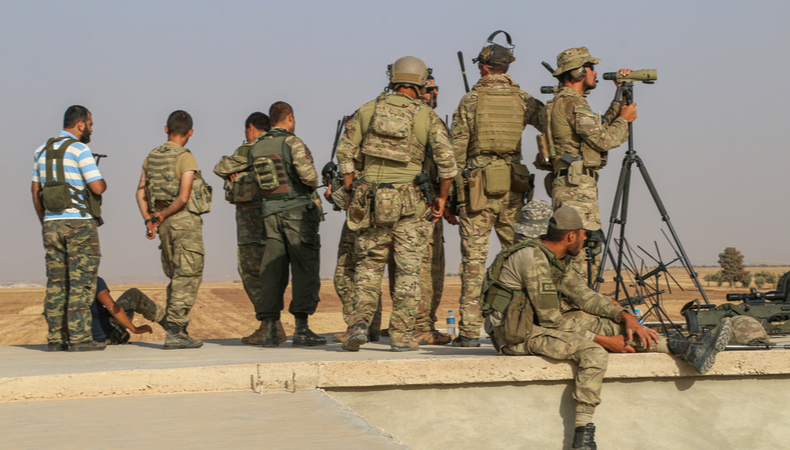Turkish forces are no exception and cannot be present in Libya, US State Department says

The US State Department’s regional spokesman for the Middle East and North Africa, Samuel Wahlberg, stressed that Washington could not consider Turkish forces in Libya an exception.
They cannot remain and be present on Libyan soil.In an interview with the Arab channel “Sada Al-Balad,” he said that the United States is monitoring all the Libyan people’s steps in the recent period and sees that Egypt plays a significant and positive role in the relationship is happening in Libya. Wahlberg pointed out that the American position is clear, as Washington is opposed to any foreign forces or mercenaries on Libyan soil, including mercenaries from Turkey or Russia Wagner and so on.
The US official said Turkey believes there is an exception, but the US sees no basis or motivation for Turkish troops and mercenaries to remain in Libyan territory. He reiterated that the agreement signed by the outgoing Government of National Accord (GNA), or with any of its former officials in Libya, does not represent a legal basis for the stay of Turkish forces in Libya. “Now we need to focus on the progress the Libyan people have made and support them to pave the way for the December 24 elections.” He concluded the US undersecretary.
Libyans are awaiting the presidential and parliamentary elections to be held on December 24, 2021, according to members of the Political Dialogue Forum, after rounds and direct and virtual meetings, which have been held for months in the last period, under the aegis of the United Nations Support Mission in Libya (UNSMIL).
Political Forum members chose a new executive authority that would pave the way for elections later this year. Mohammed Younis Al Menfi was appointed President of the Presidential Council, and Abdul Hamid Al-Dabaiba Prime Minister of the transitory and unified Libyan Executive Authority. Musa Al-Koni and Abdul God al-Lafi were appointed as members of the Presidential Council after their list received the most votes at the LPDF in Geneva four months ago.
Last week, LPDF members failed to reach a compromise on the constitutional basis for the December elections. On Sunday, Vice President Musa al Koni revealed that he had submitted a presidential decision with legal effect to the Supreme Court to overcome the political deadlock and allow Libyans to choose their representatives.
The vice president indicated that the members of the LPDF had to agree to form a special committee that lays the constitutional basis for conducting elections through voting, as happened in approving the current interim government of national unity led by the prime minister, Abdel Hamid Al Dabaiba. He confirmed that the failure by the LPDF to reach a consensus on the elections’ constitutional basis depended on the insistence of different parties on how to manage them.
The High Council of State wants a referendum on the constitution, while Parliament asks that the president be chosen directly through the people. However, a block of parliamentarians prefers the president to be elected by the House. Koni warned that the Libyan people are in a state of turmoil and intense anger towards politicians and their performances and sees them as the root cause of the crises they are experiencing. According to experts, that could lead to new military tensions in the North African country.




